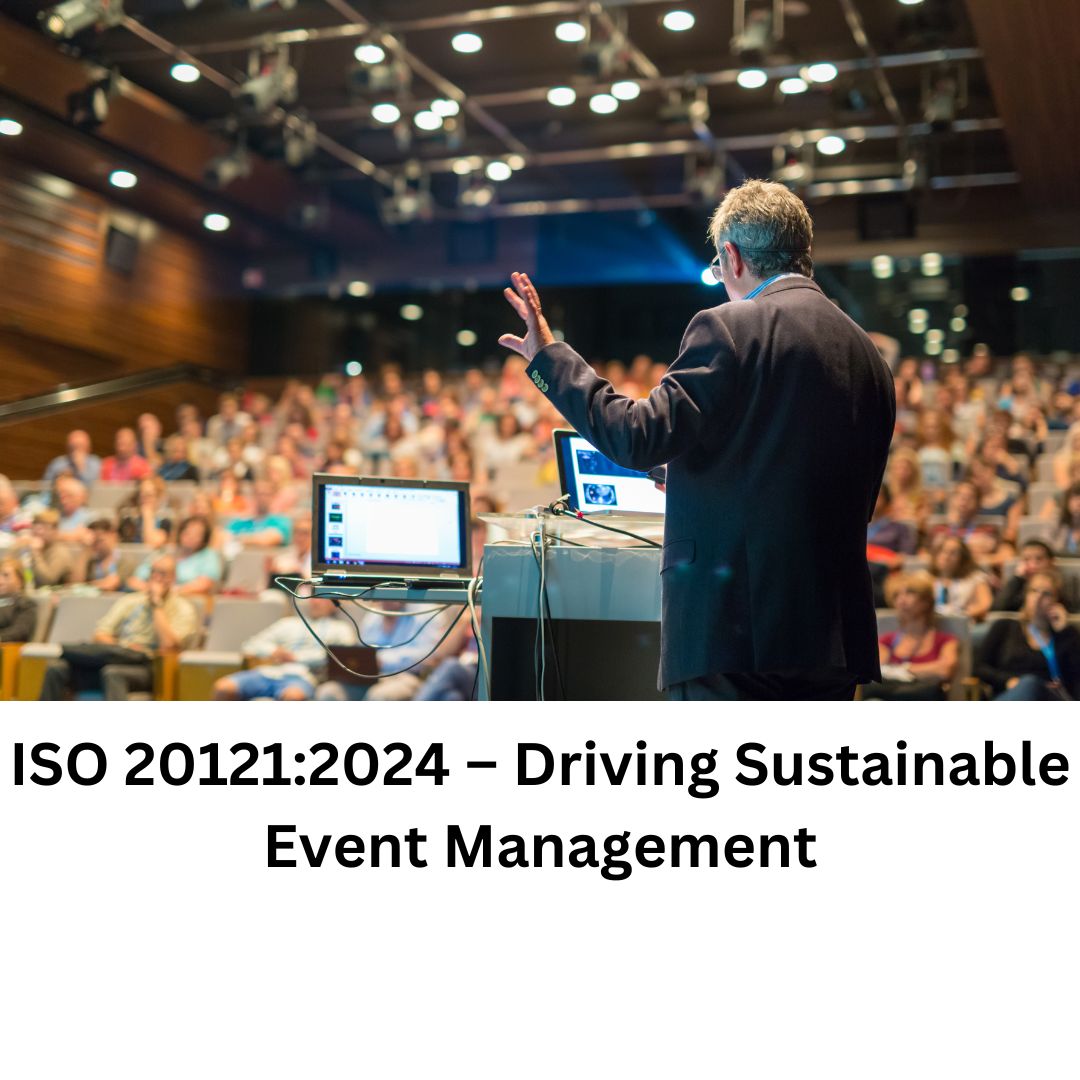Blog Details

ISO 20121:2024 – Driving Sustainable Event Management
Events bring people together to celebrate, collaborate, and innovate. From international sports tournaments and music festivals to corporate conferences and community gatherings, events have a significant social and economic impact. However, they can also leave behind negative footprints—excessive waste, carbon emissions, and resource depletion. To address these challenges, ISO 20121:2024 has emerged as the global benchmark for sustainable event management. This international standard provides a structured framework for organizations to host events responsibly, balancing environmental care, social inclusion, and economic viability.
In this blog, we will explore ISO 20121:2024 in depth, its importance, benefits, and implementation, along with why businesses should partner with Ascent Inspecta for certification.
What is ISO 20121:2024?
ISO 20121:2024 is an updated version of the international standard originally introduced during the London 2012 Olympics. It is specifically designed to help event organizers, venues, and suppliers integrate sustainability principles into every aspect of event management.
This standard covers all stages of event planning and execution, including:
- 📍 Venue selection
- 🛒 Resource procurement
- 🚚 Logistics and operations
- 🤝 Stakeholder engagement
- ♻️ Waste management and carbon footprint reduction
- 🏡 Legacy and long-term community benefits
ISO 20121:2024 encourages organizations to create a management system that embeds sustainability into daily decision-making and ensures continuous improvement. It is not just about reducing harm but also about maximizing positive outcomes for society, the economy, and the environment.
Why ISO 20121:2024 Matters
- 🌍 Environmental Responsibility – Events often generate tons of waste, use massive energy, and consume significant resources. The standard ensures better waste management, energy efficiency, and reduced carbon emissions.
- 🌈 Social Inclusivity – ISO 20121:2024 encourages inclusivity by involving diverse stakeholders, ensuring accessibility, and leaving a positive community impact.
- 💰 Economic Sustainability – Events can be expensive. By managing resources wisely, organizations can reduce costs, improve efficiency, and ensure long-term profitability.
- ✅ Reputation & Trust – Organizations certified in ISO 20121 gain credibility as leaders in sustainable practices, which strengthens their brand image.
- 🎯 Global Alignment – The standard aligns with the United Nations Sustainable Development Goals (SDGs), making it relevant for organizations committed to corporate social responsibility.
Key Benefits of ISO 20121:2024
- 🌱 Reduced Environmental Impact: The framework guides event managers to minimize resource consumption, cut energy usage, reduce plastic dependency, and adopt eco-friendly alternatives.
- 👥 Enhanced Stakeholder Engagement: It fosters trust among participants, sponsors, suppliers, and communities through transparent, responsible practices.
- 🛡️ Improved Risk Management: By planning ahead and integrating sustainability, organizations can prevent risks such as reputational damage, compliance failures, or negative publicity.
- 💸 Cost Savings: Efficient resource use, optimized energy, and reduced waste lower operational costs while still maintaining quality.
- 🚀 Stronger Market Position: Certification sets organizations apart in a competitive market, showing commitment to innovation and responsibility.
Implementation of ISO 20121:2024
Implementing ISO 20121:2024 requires a systematic approach. Here’s a simplified roadmap:
- 🧭 Step 1: Commitment from Leadership – Top management must support the initiative by establishing sustainability objectives and providing necessary resources.
- 🔍 Step 2: Assess Current Practices – Organizations should conduct a gap analysis to evaluate existing processes and identify areas needing improvement.
- 📢 Step 3: Engage Stakeholders – Consultation with employees, suppliers, attendees, and community members ensures inclusivity and shared responsibility.
- 📃 Step 4: Develop a Sustainability Policy – Create policies that outline sustainability goals, strategies, and implementation plans tailored to the event type.
- 📏 Step 5: Set Measurable Objectives – Define clear metrics such as waste reduction targets, energy-saving goals, or accessibility standards.
- 📊 Step 6: Implement and Monitor – Put sustainable practices into action and track performance through regular monitoring and reporting.
- 🔒 Step 7: Audit and Certification – Engage an accredited certification body, such as Ascent Inspecta, to conduct an independent audit and certify compliance.
Real-World Applications of ISO 20121:2024
- 🏆 Sports Events – Major tournaments like the Olympics and FIFA World Cup use sustainable event practices to minimize carbon emissions.
- 🎶 Music Festivals – Organizers integrate eco-friendly transport, renewable energy, and waste recycling.
- 🏢 Corporate Events – Conferences adopt paperless systems, virtual participation options, and energy-efficient venues.
- 🏘️ Community Programs – Local festivals emphasize inclusivity, cultural respect, and long-term benefits for residents.
Challenges in Adopting ISO 20121:2024
- 💸 Initial Investment: Adopting sustainable measures may seem costly at first.
- 🧠 Awareness Gap: Not all stakeholders understand sustainability principles.
- 🔧 Operational Adjustments: Shifting from traditional event planning requires training and cultural change.
- 📈 Measurement Difficulties: Tracking sustainability metrics can be complex without proper tools.
However, with expert guidance and professional auditing services, these challenges can be effectively managed.
The Future of Sustainable Events
The demand for sustainable events is growing rapidly. Audiences, governments, and stakeholders now expect organizations to demonstrate accountability. ISO 20121:2024 ensures that events contribute to environmental conservation, social equity, and economic development.
As sustainability becomes a non-negotiable business practice, this standard will continue to empower organizations to lead by example, proving that large-scale events can be both impactful and responsible.
Why Choose Ascent Inspecta for ISO 20121:2024 Certification?
- 🧠 Expert Guidance: Our team understands the latest ISO 20121:2024 updates and sustainability trends, ensuring you meet every requirement effectively.
- 🛠️ Tailored Solutions: We customize our services based on your event type, industry, and sustainability goals.
- 🔄 End-to-End Support: From gap analysis, documentation, implementation, training, to certification—Ascent Inspecta supports you every step of the way.
- ⚖️ Risk Reduction & Compliance: We help build systems that reduce environmental risk, ensure stakeholder satisfaction, and demonstrate full compliance.
- 🏅 Proven Experience: With years of ISO certification expertise, Ascent Inspecta is a trusted name for organizations aiming to align with international standards and achieve long-term success.
Ascent Inspecta is your reliable partner in turning ISO 20121:2024 certification into a sustainable and strategic advantage.
Leave a Comment
We would love to hear your thoughts! Please leave your comment below:
